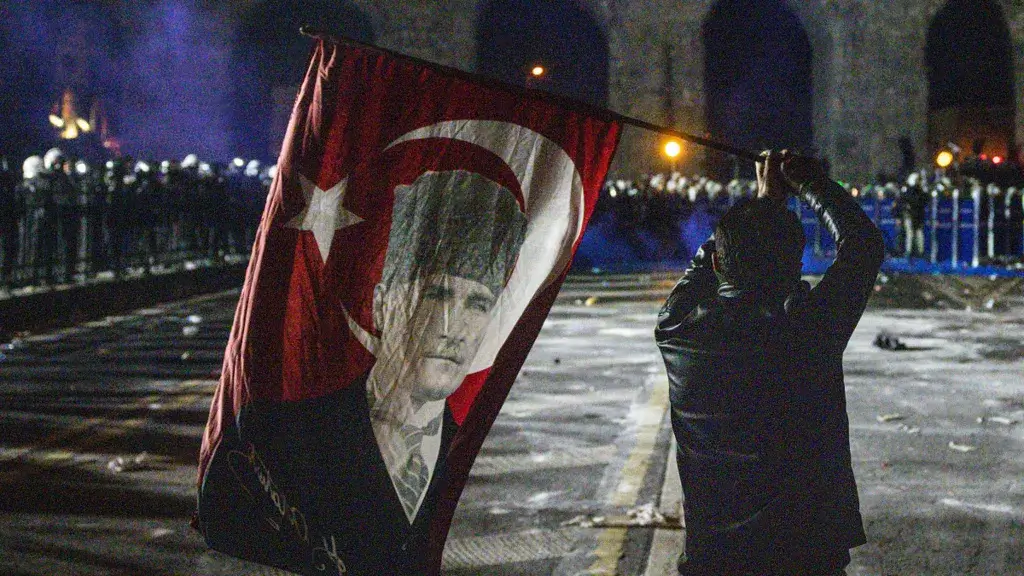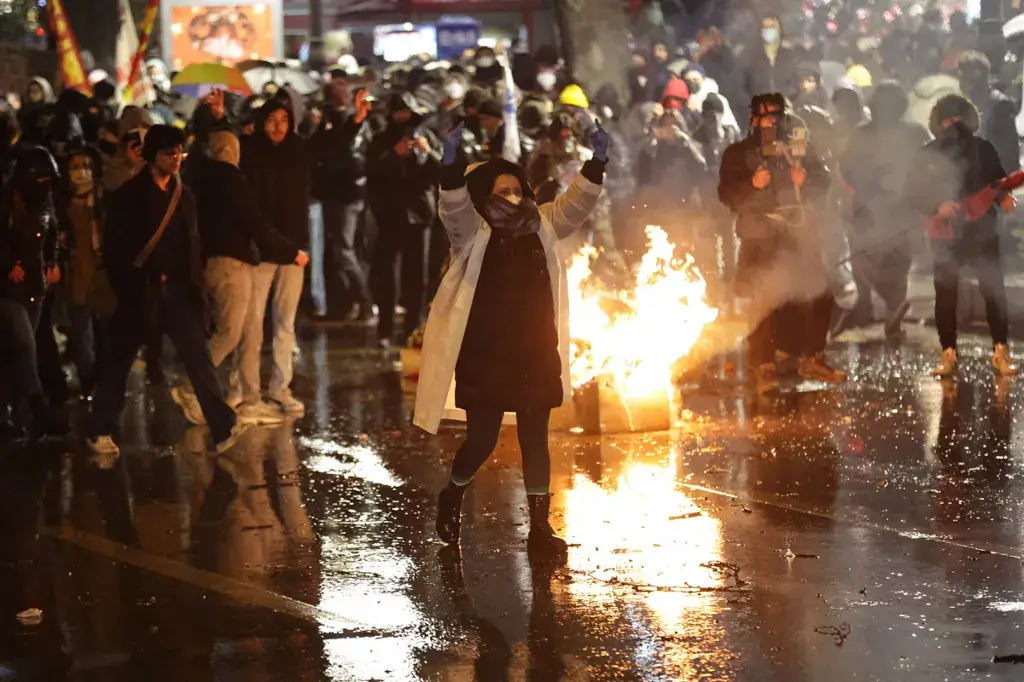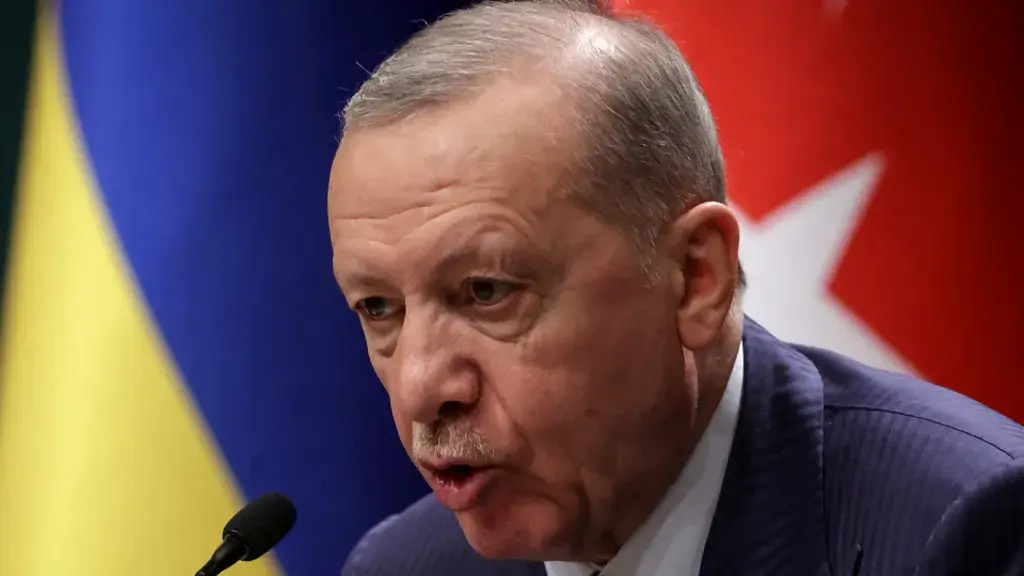
Tens of thousands across Turkey are protesting the arrest of Istanbul Mayor Ekrem Imamoglu, the key rival of President Recep Tayyip Erdogan. Authorities have responded with tear gas and rubber bullets, escalating the largest unrest in over a decade.
What Sparked the Protests in Turkey?
Mass protests erupted in Istanbul on March 19, following the arrest of opposition leader Ekrem Imamoglu earlier that day.
The arrest came just days before Imamoglu was set to be confirmed as the presidential candidate for the secular Republican People’s Party (CHP). Despite being in prison, he was officially declared the party’s 2028 presidential candidate in a symbolic vote on Sunday.
Authorities have accused Imamoglu of corruption, bribery, extortion, illegal data collection, and tender rigging, charges he strongly denies. More than 100 others have also been detained as part of the investigation.
Following his formal arrest and suspension as Istanbul mayor, CHP leaders called the move a “coup against our next president”, urging supporters to take to the streets in protest.

Mass Protests Spread Across Turkey as Students Lead the Charge
Students at multiple Istanbul universities took to the streets, chanting “We are not scared, we won’t be silenced, we will not obey”—a slogan widely used by Turkey’s opposition.
Initially, the protests were small for a city of 16 million, but they have since spread to dozens of cities, reaching levels of unrest not seen in over a decade.
While demonstrations have been mostly peaceful, clashes have erupted as police deployed water cannons and tear gas to disperse crowds.
The unrest comes amid an ongoing crackdown on opposition figures, journalists, and entertainers, fueling fears of Turkey’s drift toward autocracy. Many protesters also cite frustrations over economic struggles and healthcare issues as key driving forces behind the demonstrations.
Who Is Leading the Protests?

Turkey Protests Escalate as Over 1,100 Detained Amid Imamoglu Arrest
University students are at the forefront of nationwide protests following the arrest of Istanbul Mayor Ekrem Imamoglu. On Wednesday, students from various universities gathered near Istanbul University in Beyazit, breaking through police barricades as they marched toward Sarchane, where the Istanbul Metropolitan Municipality is located.
By Thursday, demonstrations had spread from university campuses to the streets of Istanbul and beyond. Since protests began, over 1,100 people have been detained, according to Turkey’s Interior Ministry.
Crackdown on Journalists and Opposition
At least 10 journalists covering the protests have been detained in Istanbul and Izmir during dawn raids by police. Despite the crackdown, the CHP party proceeded with its symbolic vote for Imamoglu as its presidential candidate on Sunday, showing defiance in the face of his arrest.
Speaking near Istanbul’s city hall, a 29-year-old voter, Ferhat, accused the government of jailing strong opponents to President Recep Tayyip Erdogan, calling Turkey’s system a “dictatorship in name only.”
Another protester, 70-year-old Sukru Ilker, said demonstrators were not looking to confront the police, but to defend the leader they had voted for. Meanwhile, Ayten Oktay, 63, declared that Turkey had ‘woken up’ and vowed to fight for their rights.
Turkish Government’s Response
President Recep Tayyip Erdogan has condemned the protests, calling them “vandalism” and “street terror.” He vowed that his government would not surrender to unrest and warned against public disorder.
Authorities have banned public gatherings, but this has not deterred protesters. The Turkish government insists that Imamoglu’s arrest was not politically motivated, arguing that the judiciary operates independently. Erdogan also accused CHP leader Özgür Özel of inciting unrest and failing to address the corruption allegations against Imamoglu.
Meanwhile, the European Commission has urged Turkey to “uphold democratic values”, emphasizing its role as both a Council of Europe member and an EU candidate nation.
How Long Has Erdogan Held Power?

Erdogan’s 22-Year Rule: A Legacy of Power and Controversy
President Recep Tayyip Erdogan has been in power for 22 years, serving as both Prime Minister and President under the Islamist-rooted Justice and Development Party (AKP), which he founded.
However, due to term limits, Erdogan cannot seek re-election in 2028 unless he amends the constitution.
Surviving a Coup and Governing Through Crisis
Erdogan and his AKP government survived a failed coup attempt in 2016, which led to violent clashes in Istanbul and Ankara, resulting in 256 deaths.
To his supporters, Erdogan is credited with economic growth and stability, while his critics accuse him of authoritarianism, silencing dissent and crushing opposition voices.
Travel Advisory for Turkey Amid Protests
The UK Foreign Office has not issued an update on travel advice following the recent protests. However, it warns that demonstrations in Turkish cities can turn violent, with police using tear gas and water cannons to disperse crowds.
Travelers are advised to avoid all protests and leave the area if unrest occurs. The Foreign Office also advises against all travel within 10km (6 miles) of the Syrian border, citing the risk of conflict and terrorism.




